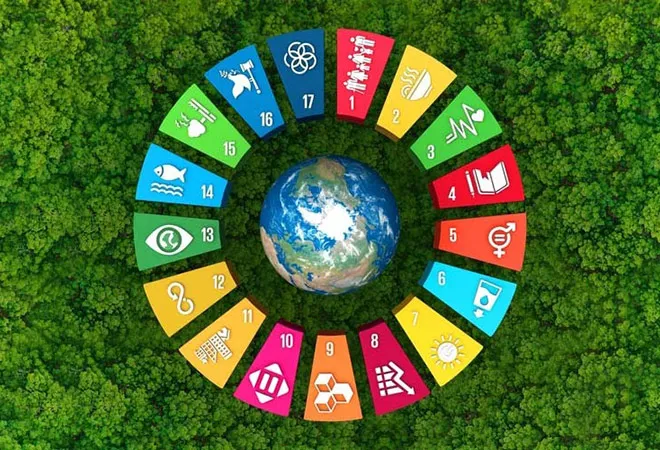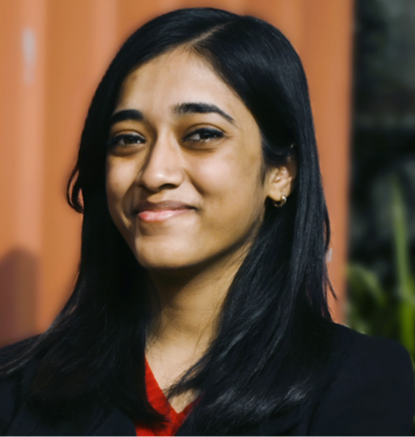-
CENTRES
Progammes & Centres
Location
By embracing the inclusive wealth paradigm, India has the opportunity to reimagine progress in a way that harmonises the aspirations of humanity with the imperatives of nature

In September 2015, the United Nations (UN) member states adopted a visionary blueprint for global progress known as Agenda 2030. This transformative agenda, consisting of 17 Sustainable Development Goals (SDGs) and 169 targets, aimed to guide nations towards a path of sustainable development, encompassing social advancement, environmental protection, and economic growth. However, the realisation of these goals has been hindered by the lack of comprehensive monitoring tools to assess progress across the multifaceted dimensions of sustainable development.
In an era defined by the pursuit of sustainable development, the concept of Inclusive Wealth (IW) emerges as a comprehensive and transformative paradigm that transcends the traditional boundaries of progress measurement. While the SDGs have provided a vital framework for addressing global challenges, the notion of inclusive wealth introduces a broader perspective that encompasses economic growth and considers the sustainable and equitable accumulation of various forms of capital: Natural, human, and produced capital. By shifting the focus from mere economic expansion, it recognises that pursuing development necessitates a nuanced consideration of the intricate interdependencies between these three forms of capital.
GDP, while significant, falls short of recognising the value of human potential, the non-market benefits of our environmental resources, and the economic impact of positive and negative externalities.
At the heart of the inclusive wealth concept lies a fundamental reimagining of the traditional definition of wealth. Unlike the conventional measure of Gross Domestic Product (GDP), which quantifies economic output, inclusive wealth incorporates a wider array of assets that collectively contribute to societal well-being and environmental robustness. GDP, while significant, falls short of recognising the value of human potential, the non-market benefits of our environmental resources, and the economic impact of positive and negative externalities.
The latest Inclusive Wealth Report 2018 by the United Nations Environment Programme (UNEP) advocates for the adoption of alternative indices that offer a more comprehensive evaluation of the sustainability of developmental progress. The Inclusive Wealth Index (IWI) offers a novel approach by juxtaposing social value against the market value of resources. It encapsulates natural capital, representing the indispensable ecosystems that sustain life; human capital, encompassing the health, knowledge, and skills of individuals; and produced capital, embodying the physical and infrastructural assets. Together, these dimensions form the foundation upon which societal well-being and environmental health collectively flourish.
Table 1: Top Performers on the basis of per capita Inclusive Wealth for 1992–2014
| IWI Ranking | Country | Average Growth Per Capita During 1992-2014 (in percentage) |
| 1 | Republic of Korea | 33 |
| 2 | Singapore | 25.2 |
| 3 | Malta | 18.9 |
| 4 | Latvia | 17.9 |
| 5 | Ireland | 17.1 |
| 6 | Moldova | 17 |
| 7 | Estonia | 16 |
| 8 | Mauritius | 15.5 |
| 9 | Lithuania | 15.2 |
| 10 | Portugal | 13.9 |
Source: Inclusive Wealth Report 2018
Against the unprecedented depletion of natural resources, looming threats of climate change, and escalating social inequalities, the inclusive wealth paradigm emerges as a potent antidote, necessitating simultaneous progress across the various verticals of the sustainable development framework. By casting a spotlight on the intrinsic value of ecosystems and the environment, it underlines the criticality of sustainable resource management. Furthermore, it positions human capital at the forefront of development narratives, advocating for investments in health, education, and skill development as paramount drivers of progress. The inclusive wealth framework recognises that creating durable infrastructural assets is pivotal for the well-being of current and future generations.
An increase in IWI contributes to poverty eradication, enhances food security, promotes sustainable agriculture, fosters well-being, and aligns with numerous other SDGs.
The traditional emphasis on GDP growth as a sole measure of progress has often sparked debates among economists and ecologists. While some argue that technological advancements could counterbalance natural capital losses, ecological scientists contend that substituting one form of capital for another is unfeasible. Here, the IWI takes centre stage as a versatile and multifaceted measure of sustainable development. An increase in IWI contributes to poverty eradication, enhances food security, promotes sustainable agriculture, fosters well-being, and aligns with numerous other SDGs. In fact, a higher IWI score directly impacts the attainment of multiple SDGs (1, 2, 3, 8, 12, 13, 14, 15, and 17).
The Indian context provides a compelling case study. Despite pursuing its development aspiration along with economic growth, India has predominantly fixated on GDP expansion, neglecting other crucial indicators of progress. However, this singular focus on GDP fails to capture the complexities of economic capabilities and development realities. It disregards the environmental and social costs associated with economic activities and the distribution of income and assets across different sections of its population, resulting in an incomplete representation of overall living standards. Particularly concerning is the fact that a substantial segment of the Indian population depends on natural resources for their livelihoods. The absence of ecological accounting exposes the economy to risks threatening its long-term viability. It renders the nation vulnerable to natural disasters and the challenges of climate change.
Recent discussions also underscore the necessity of incorporating knowledge capital and acknowledging technological advancements' influence on social and economic well-being. The IWI assumes a central role in steering the implementation of the SDGs and gauges progress towards their attainment. This index uniquely accounts for intergenerational well-being and the sustainable use of resources to fulfil the needs of present and future generations alike. Setting it apart from other metrics, the IWI reflects not only ongoing trends and past behaviours but also provides an indicative measure of the long-term sustainability of past progress, ensuring Pareto optimality across generations—which will be especially crucial for India given its huge proportion of a young population.
The IWI assumes a central role in steering the implementation of the SDGs and gauges progress towards their attainment.
While India’s GDP, on average, grew at 6.4 percent between 1990 and 2014, the annual change rate of inclusive wealth in India over the same period was just 2.61 percent, primarily driven by an accumulation of physical capital. Between 1990 and 2014, the average annual growth (and their relative share in the total inclusive wealth of India) for the different forms of capital were—7.62 percent (23.5 percent) for physical capital, 2.62 percent (61.5 percent) for human capital and -0.44 percent (15.1 percent) for natural capital. While the relative share of human capital embodied in India’s inclusive wealth has remained stable over the period, there has been a significant increase in the share of physical capital at the cost of declining natural capital. However, as the negative externalities associated with critically low levels of natural wealth begin to bear direct implications for, and threaten, India’s economic progress, it is imperative that the focus on the assessment of growth and development be broadened to incorporate the concept of inclusive wealth measurement.
India's role, here, can be both pivotal and inspiring. As the nation grapples with the challenges of the 21st century, it stands at the crossroads of choices that will shape its future and reverberate across the global stage. The imperative for India to adopt an inclusive wealth approach is not just a policy consideration; but is a testament to the nation's commitment to redefining the very essence of progress. By embracing the inclusive wealth paradigm, India has the opportunity to set an unparalleled example and serve a clarion call for reimagining progress in a way that harmonises the aspirations of humanity with the imperatives of nature.
Soumya Bhowmick is an Associate Fellow at the Observer Research Foundation
Debosmita Sarkar is a Junior Fellow at the Centre for New Economic Diplomacy at Observer Research Foundation.
The views expressed above belong to the author(s). ORF research and analyses now available on Telegram! Click here to access our curated content — blogs, longforms and interviews.

Soumya Bhowmick is a Fellow and Lead, World Economies and Sustainability at the Centre for New Economic Diplomacy (CNED) at Observer Research Foundation (ORF). He ...
Read More +
Debosmita Sarkar was an Associate Fellow with the SDGs and Inclusive Growth programme at the Centre for New Economic Diplomacy at Observer Research Foundation, India. Her ...
Read More +